Remove SearchPartyUserAgent From Your Mac [2024 Guide]
Before you dive in
Exploring the internet requires robust protection. SpyHunter is designed to elevate your computer's security.
Take a step towards safer online experiences today. Download SpyHunter for Mac here! Shield your device from digital dangers and enjoy peace of mind with a secure browsing experience.

If you’re a Mac user, you may have seen the scary message: SearchPartyUserAgent will damage your computer. This means you have adware installed on your Mac, slowing down your computer and compromising your privacy.
In this article, we’ll cover SearchPartyUserAgent, what it does to your Mac, and how to remove it for good so your device is safe and running smoothly. We’ll also give you practical advice on restoring your digital life.
What is SearchPartyUserAgent?
The SearchPartyUserAgent will damage your computer message is a sign of software that behaves like adware and potentially unwanted programs (PUPs). It is not a virus in the classical sense, but it is a threat to your computer’s performance and privacy nonetheless.
SearchPartyUserAgent targets macOS only and sneaks in without your consent. Once installed, it will degrade your computing experience by showing you unwanted ads and potentially exposing your system to more malware.
How SearchPartyUserAgent affects your Mac?
Once on your Mac SearchPartyUserAgent starts doing unauthorized things that will impact your device’s performance and online privacy. This will slow down your browsing, redirect you to harmful sites, and increase the risk of more malware infections.
- Ad Overload: It floods your browser with popup ads, banners, and redirects, slowing down your browsing and potentially taking you to malicious sites.
- Browser Hijacking: It will change your browser settings without permission, switching your homepage, search engine, and new tab to those controlled by the adware.
- Data Harvesting: It will monitor your online activities, collecting your browsing history, search queries, and personal details. These can be used to display targeted ads or sold to third parties.
- High CPU Usage: SearchPartyUserAgent consumes significant system resources, causing high CPU usage. This continuous background activity slows down your Mac and can lead to overheating and reduced overall system performance.
These activities invade your privacy and slow down your Mac by consuming system resources. Background processes needed to load ads and track you will cause noticeable slowdowns, making even simple tasks annoying.
How did your Mac get SearchPartyUserAgent?
Knowing how SearchPartyUserAgent and other unwanted programs get into your Mac will help you stay ahead and protect your computer from threats.
- Software Bundling: Often, PUAs are included with other software downloads. When you download a free application from the Internet, it may include additional software, including unwanted ones like SearchPartyUserAgent.
- Deceptive Ads: Clicking on misleading ads online can also download unwanted software. These ads often look like legitimate alerts or warnings telling you to install software to “fix” non-existent problems on your Mac.
- Email Attachments: Unsolicited emails with attachments or links can be a gateway for PUAs. Opening these attachments or clicking links may install unwanted software on your system.
- Compromised Websites: Visiting compromised or malicious websites can automatically download unwanted software. These sites exploit vulnerabilities in your web browser to install PUAs without your consent.
Understanding how SearchPartyUserAgent and similar unwanted programs infiltrate your Mac can help you stay vigilant and protect your computer from threats.
Is SearchPartyUserAgent a threat to your Mac?
Adware like SearchPartyUserAgent shows you a ton of unwanted ads. These ads are not just annoying; they can lead to more problems.
Some might redirect you to harmful sites, increasing the risk of downloading more malware. Changes made by this adware to your web browsers will slow down your computer and affect your Internet browsing.
How to remove SearchPartyUserAgent on Mac?
SearchPartyUserAgent on your Mac can significantly disrupt your usual computer operations. Follow this step-by-step guide to get rid of it:
Step 1: Open Utilities
Open the Utilities folder, where you can find tools to manage system processes and settings.
- Press
⌘+⇧+Usimultaneously. Alternatively, click onGofrom yourFindermenu. - Select
Utilitiesfrom the drop-down menu.
Step 2: Use Activity Monitor
Next, use the Activity Monitor to identify and stop any processes related to SearchPartyUserAgent that might be running in the background.
- Open the
Activity Monitorfrom theUtilitiesfolder. - Look for any processes associated with SearchPartyUserAgent.
- Select the suspicious process.
- Click the
Force Quitoption to stop the process immediately.
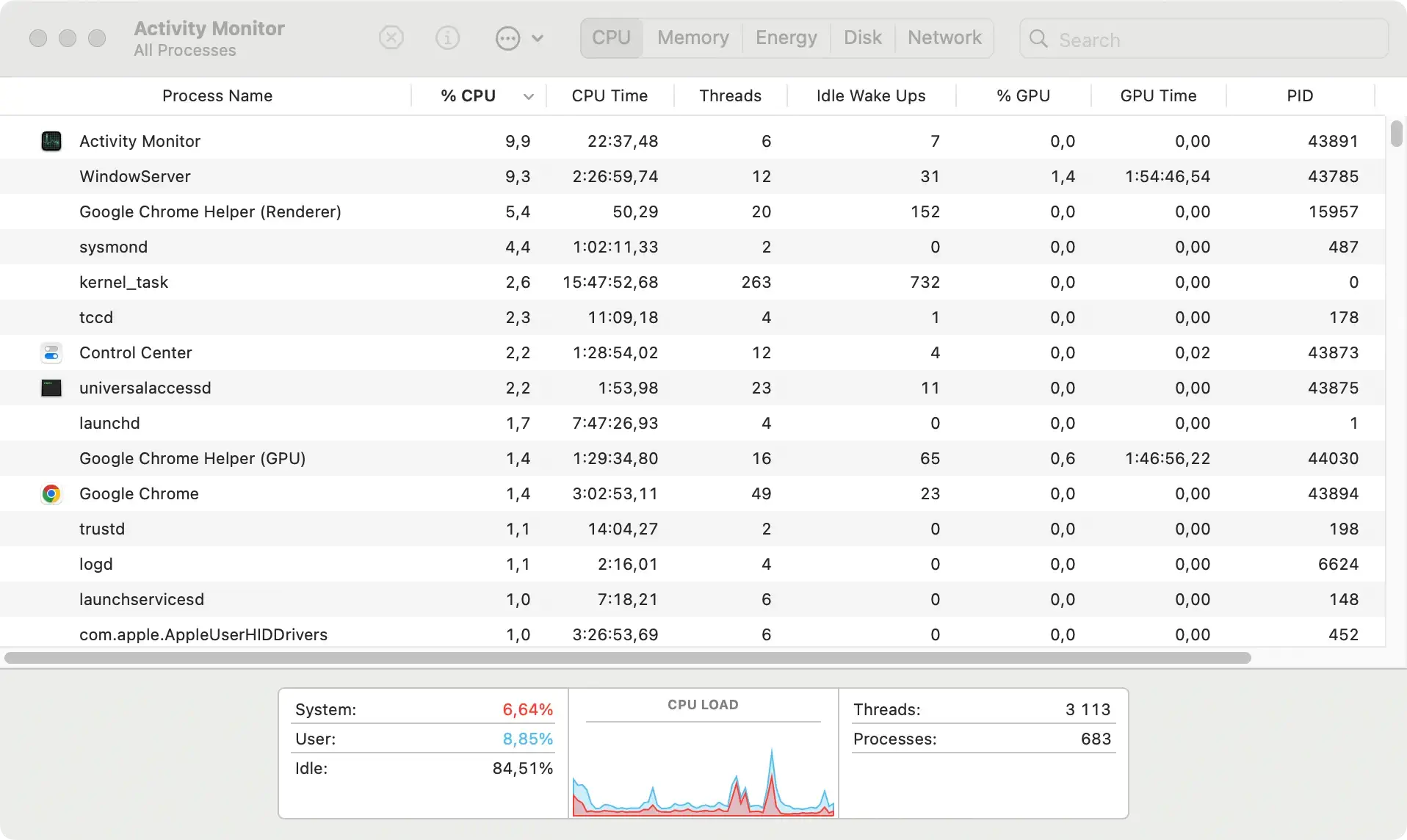
Step 3: Navigate to the Applications folder
Now, locate and remove the SearchPartyUserAgent application from the Applications folder to prevent it from running on startup.
- Press
⇧+⌘+Ato open theApplicationsfolder. - Search for any application resembling SearchPartyUserAgent.
- Right-click on the identified application.
- Choose
Move to Trash.
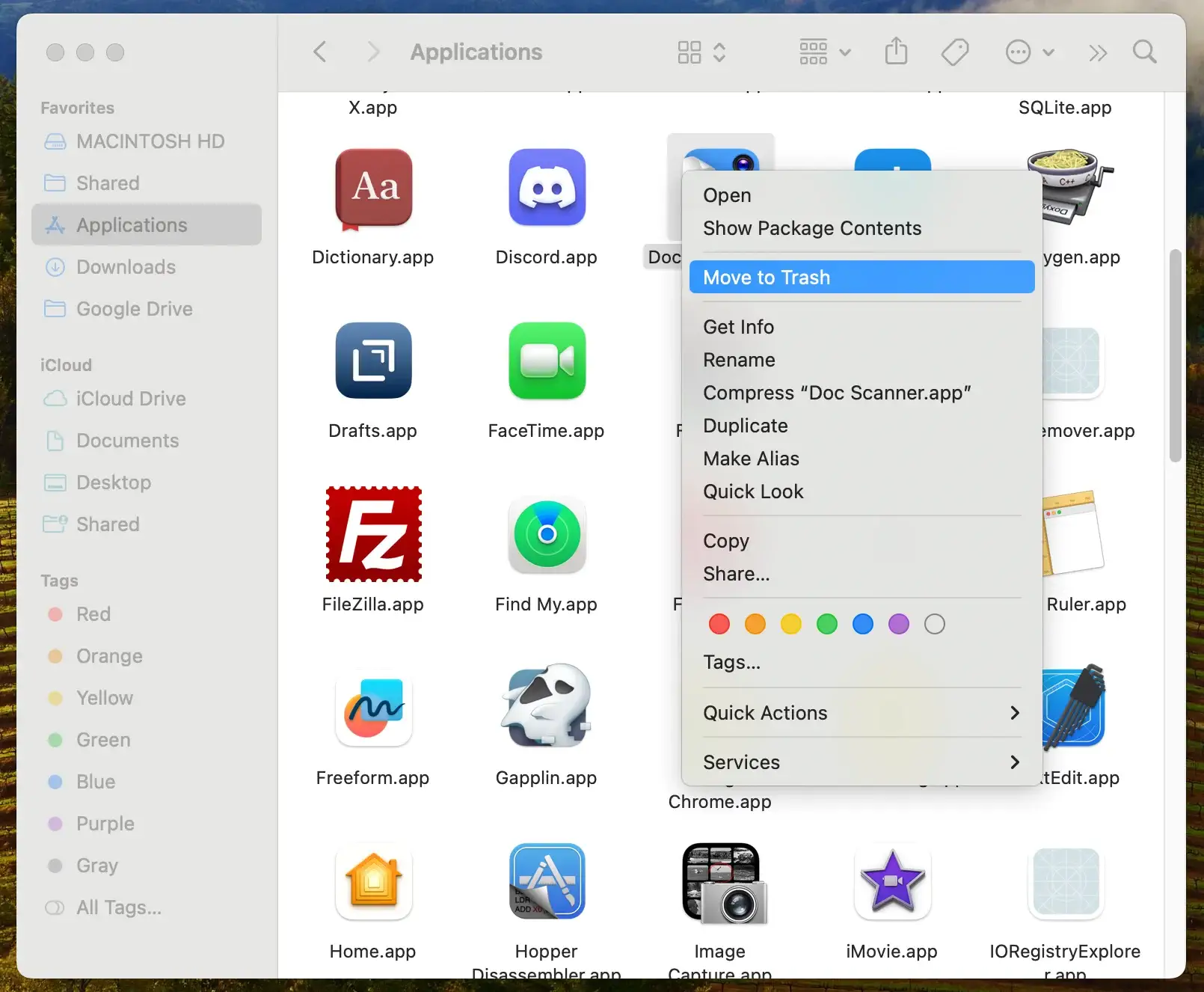
Step 4: Remove suspicious login items
Check the Login Items in System Settings to ensure SearchPartyUserAgent is not set to start automatically when you log in.
- Open
System Settings > General. - Click on
Login Items. - Identify any items related to SearchPartyUserAgent.
- Select the suspicious items.
- Click the minus (“-“) button to remove them.
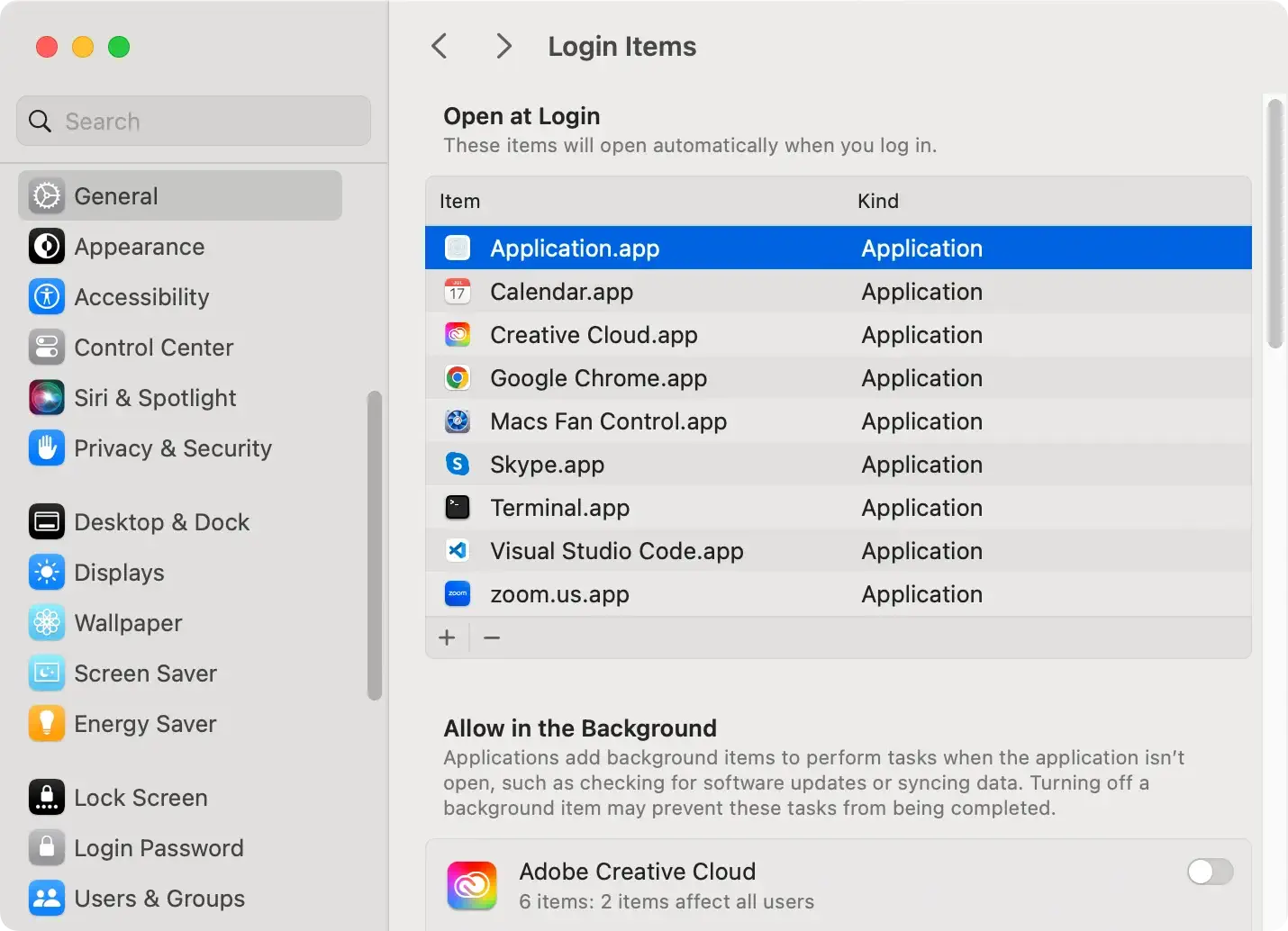
Step 5: Clean leftover files
It is essential to search for and delete any remaining files associated with SearchPartyUserAgent to ensure complete removal.
- Open
Finder. - Use the search bar to find any remaining files by typing the application’s name.
- Set search parameters to include
System Files. - Move the identified files to the Trash.
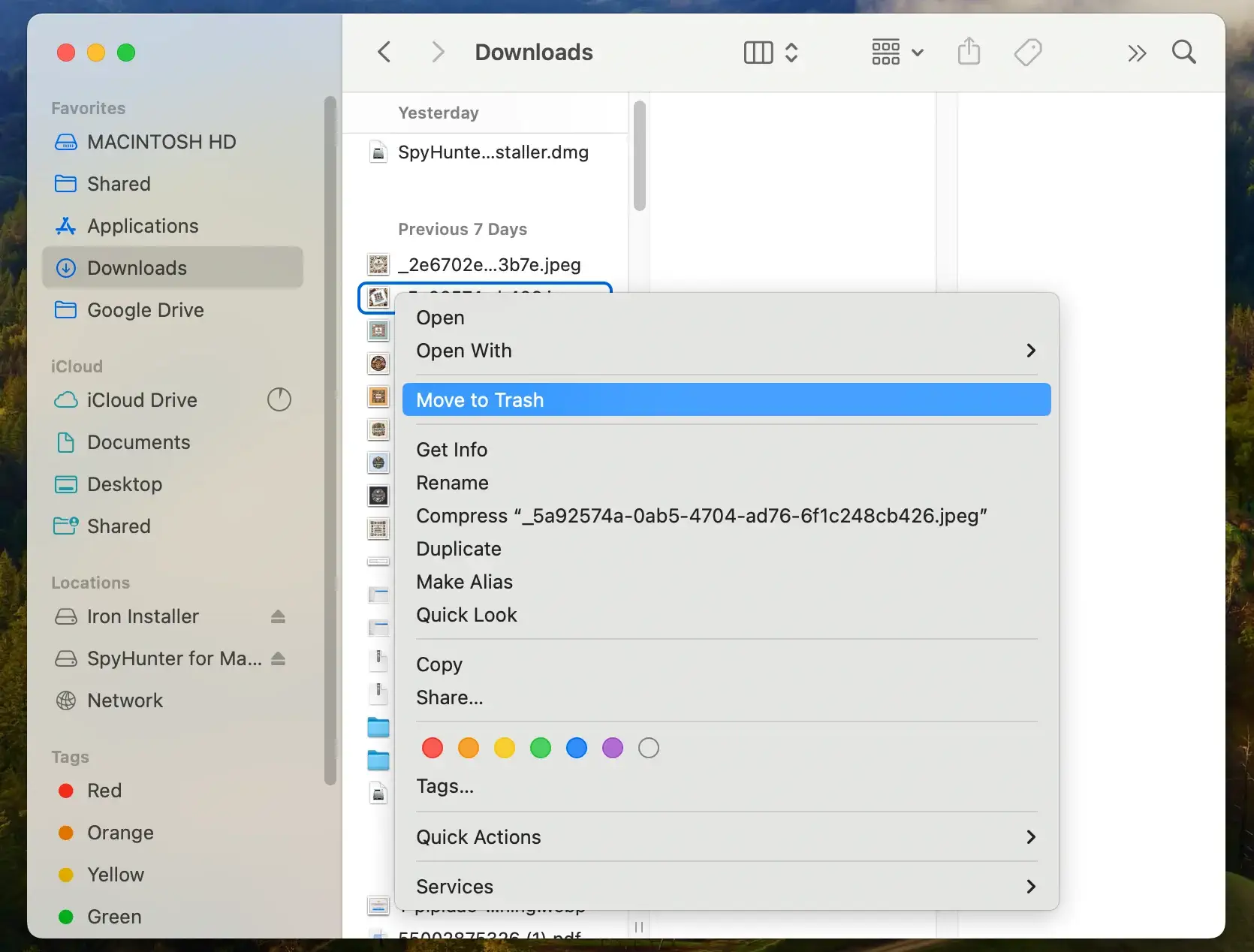
Step 6: Check the Library folders
To ensure no remnants of SearchPartyUserAgent remain, check specific Library folders for any related files.
- Select
Gofrom theFindermenu. - Click on
Go to Folder. Navigate to each of the following directories:/Library/LaunchAgents//Library/LaunchDaemons//Library/StartupItems//Library/Application Support/
- Search for files linked to the adware.
- Ensure not to delete essential system files.
- Remove any identified adware files.
Step 7: Run an anti-malware scan with SpyHunter
Finally, to confirm that all traces of SearchPartyUserAgent are removed, perform a full system scan with SpyHunter.
SpyHunter for Mac is designed to address the specific issues and threats Mac users face. It’s more than just a malware removal tool.
- Download SpyHunter for free and install it.
- Open SpyHunter and run a full scan.
- Let SpyHunter detect SearchPartyUserAgent or any other malicious software.
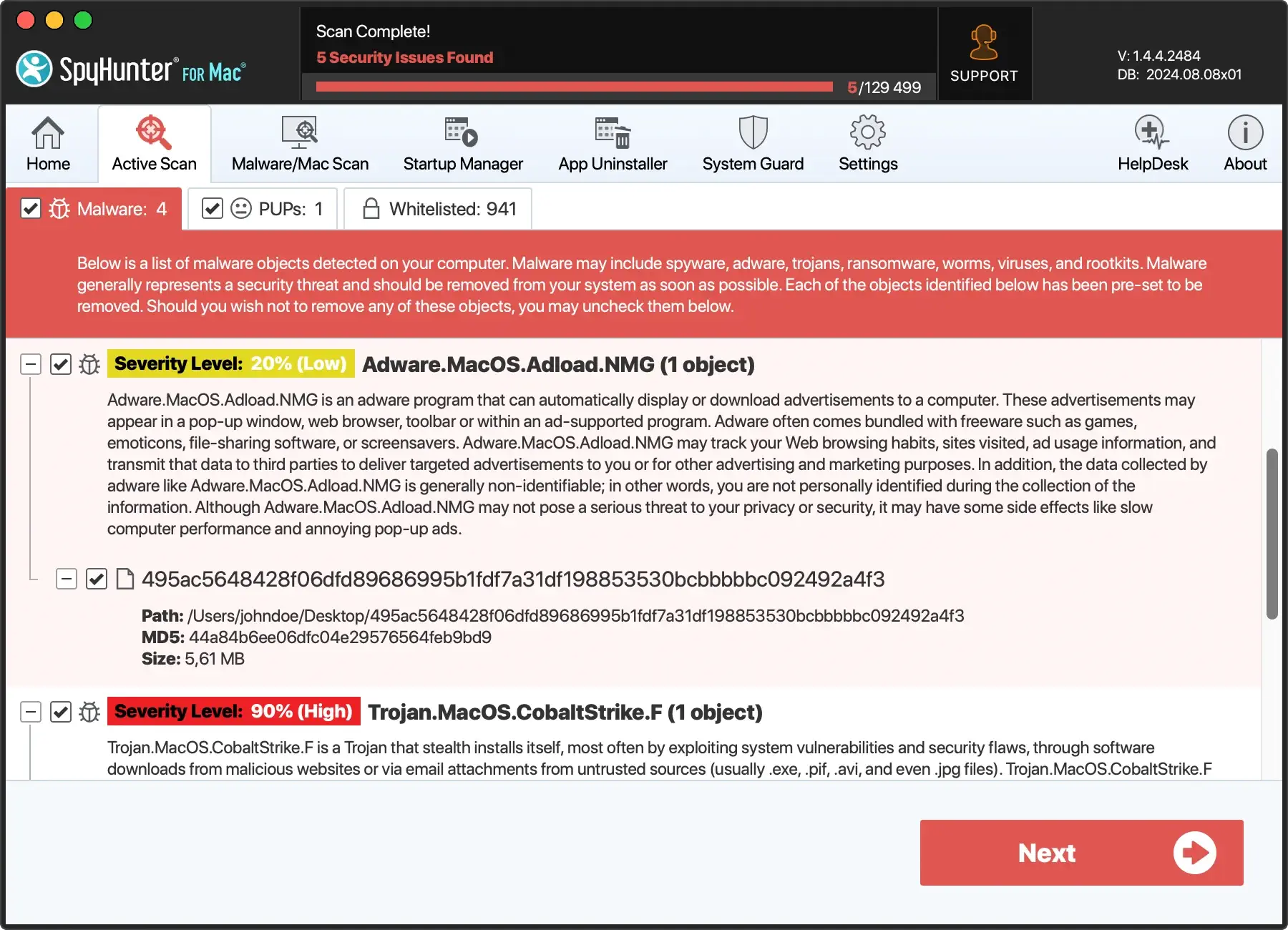
- Follow SpyHunter’s instructions to complete the removal.
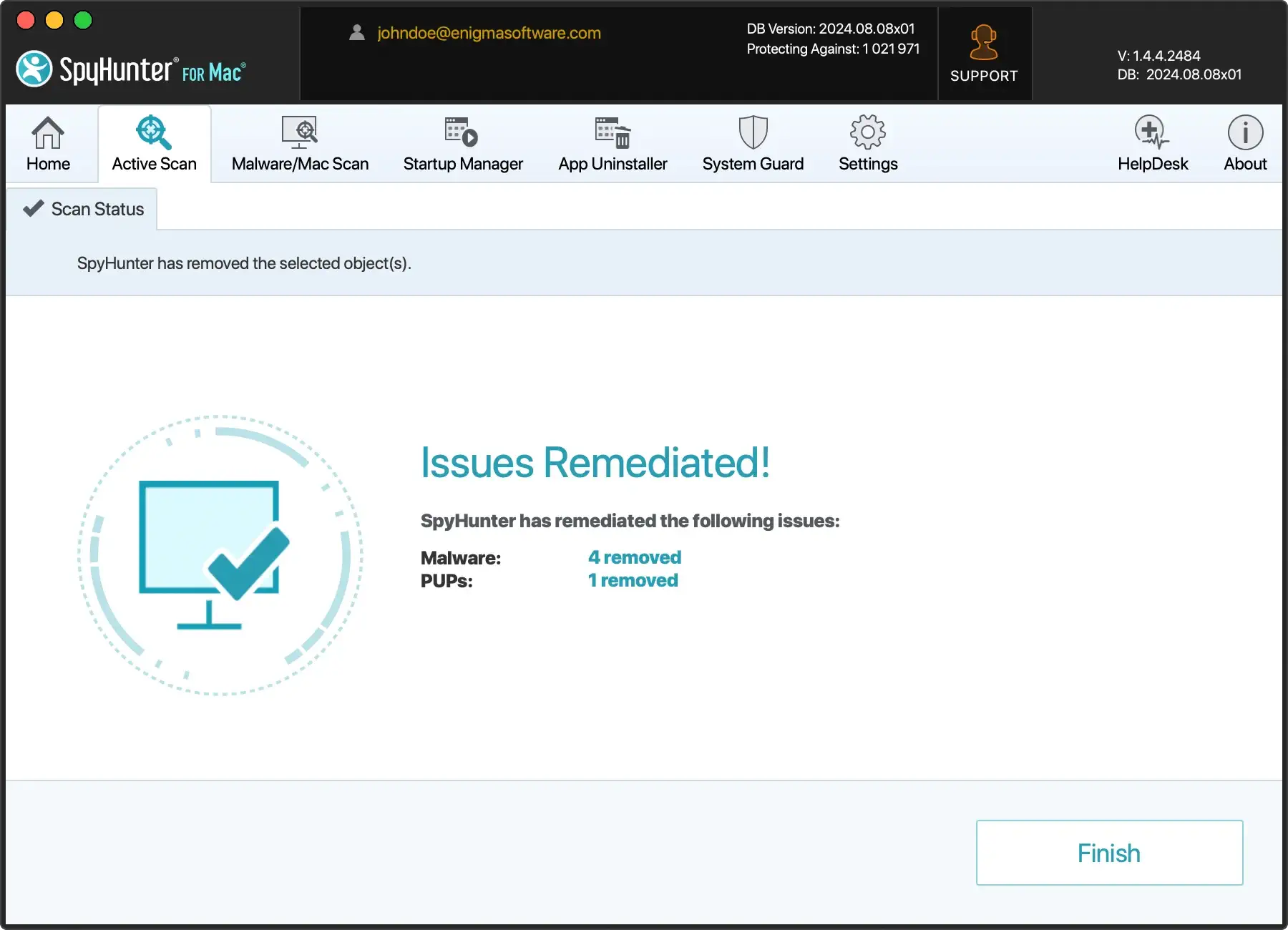
Choosing SpyHunter for your Mac’s security ensures thorough system cleaning and ongoing protection, empowering you to safeguard your digital life effectively.
Reset browser after SearchPartyUserAgent removal
After SearchPartyUserAgent removal, resetting your browser will help remove any remaining risks and prevent future intrusions. Here’s how to reset common browsers:
Safari
- Open Safari.
- Go to the Safari menu and select
Preferences. - Go to
Extensionsand remove any suspicious extensions. - In the
Privacysection, clickManage Website Dataand selectRemove All. - Reset your homepage in the
Generaltab.
Google Chrome
- Open Google Chrome.
- Click the three dots in the top right to access the menu and go to
Settings. - Scroll down to
Advanced, go toReset and clean upand selectRestore settings to their original defaults. - Click
Reset settingsto confirm.
Mozilla Firefox
- Open Mozilla Firefox.
- Click the menu button, select
Helpand thenTroubleshooting Information. - Click
Refresh Firefoxand confirm.
Final words
Dealing with adware like SearchPartyUserAgent can be a pain, but following this manual removal guide and running a full scan with SpyHunter will remove it from your Mac.
Remember, Mac security is an ongoing process. Update your software, be careful when downloading apps, and consider using anti-malware tools to protect against future threats. Be vigilant and proactive, and your Mac will be safe and smooth.